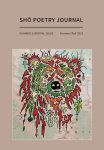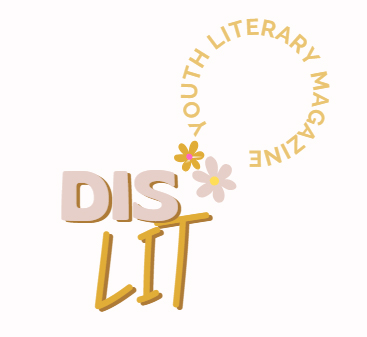New Lit on the Block :: Shō Poetry Journal

Shō Poetry Journal is a new print publication released twice a year, and while it can’t be said it has a happy origin story, Editor Johnny Cordova has turned adversity into a beautifully crafted opportunity for both readers and writers. “Shō is a project that I abandoned in 2003 shortly after the second issue was published. I was going through a divorce, moved from Arizona to California, and wanted a clean break from everything.” Both Cordova and Editor Dominique Ahkong had moved from Southeast Asia to Arizona and started sending their own poetry to journals. “We were struck by how many journals had moved online. We saw a need in the market for a high-quality independent print journal that publishes a wide range of voices, accepts simultaneous submissions, has a reasonable response time, and that feels good in the hands.” And thus, Shō was created.
Despite the name, Cordova impresses, “It should be noted that we are not a Japanese-themed journal. The name Shō was given to Founding Editor Sita Martin by her spiritual teacher, who never told her what it meant. It’s a Japanese prefix which can take on a variety of meanings, dependent on context,” Cordova says. “The meaning we like is ‘to bridge’ or ‘cross over.’ Given that Shō was started by Sita Martin before she succumbed to a battle with cancer, we feel it is an appropriate interpretation, and we made the bridge our logo.”
Shō is edited by Cordova and Ahkong. “Neither of us has an MFA in poetry,” Cordova shares when asked about credentials. “We both studied creative writing as undergraduates at Prescott College and Middlebury College, respectively. We are mostly self-taught and are both also returning to our own poetry practices after extended periods of time away from the poetry scene.”
Cordova’s work was published in many small-press journals in the late 90s and early 2000s. He was a finalist in several book and chapbook contests, including the Pearl Poetry Prize, but has never had a collection published. His poems have recently been published in Jelly Bucket, Nerve Cowboy, San Pedro River Review, Atlanta Review, Salt Hill Journal, and the New York Quarterly. His work is forthcoming in Slipstream, Main Street Rag, Trajectory, and Louisiana Literature.
Production-wise, Ahkong has a master’s degree in digital/interactive media from NYU and has experience laying out publications. She has work forthcoming in RHINO and Sugar House Review.
For writers interested in submitting work, Cordova explains that he and Ahkong are currently the only readers. “We accept submissions through Submittable. Incarcerated writers are welcome to submit via mail during our reading periods. We occasionally provide feedback on poems when we think someone has potential and we would like to encourage them, or when we believe a particular poem is close to being landed but is not quite there yet. We give out tiered rejections sparingly—when we genuinely want to see more of someone’s work. Our policy is to respond to all submissions within 30 days.”
Cordova is usually the first reader and chooses poems to be printed out for a review folder. “From there we read pieces individually and then come together to compare notes. We read poems aloud at the kitchen table, often over coffee, and discuss. Sometimes one of us has to make a convincing case for a particular piece. We make final decisions on all acceptances together.” During the production process, Cordova corresponds with submitters, while Ahkong designs and lays out the journal.
Readers can expect Shō to provide a diverse representation of contemporary poetry. “We are not wedded to any particular style,” Cordova says, admitting that he has “a weakness for strong narrative poetry and poems that are accessible to untrained readers. We like free verse, but Dominique has a weakness for strong poems that do justice to their chosen form (particularly ghazals, duplexes, pantoums). Our revival issue includes poems by Zen Abbot Richard Collins, translations by Andrew Schelling of ancient Indian poet Vidya, working-class champion Fred Voss, and deaf Cherokee poet Sage Ravenwood. There’s a range.
“We often run two or three poems from a given poet. We think this helps when introducing new poets to our readership. We welcome submissions from poets whose voices have been historically marginalized – including poets from BIPOC and LGBTQ communities – and seek to champion poets at all stages of their careers. By publishing the work of 85–120 poets per year, we aim to discover and elevate new and emerging voices.
“Because we are based in Arizona, where 27% of the state is reservation land, we offer free submissions to Native American poets, including Canadian First Nations poets, as a gesture of solidarity. We look forward to showcasing the work of more Native poets going forward.”
Cordova advises on submissions, “One thing that poets should know is that we accept as we go during each reading period, unlike other journals that collect and make decisions after their deadline. It pays to get your work in early as we tend to be more selective as we fill up and take into consideration how a particular piece might fit with what we’ve already accepted.”
Some recent contributors include Sean Thomas Dougherty, Luke Johnson, Megan Merchant, Bunkong Tuon, Ally Ang, Ellen June Wright, Dare Williams, Cassandra Whitaker, Sage Ravenwood, Alison Pelegrin, Andrew Schelling, Kathryn Bratt-Pfotenhauer, Shirley Geok-lin Lim, and Tony Gloeggler. The next issue will feature poets such as Arah Ko, Stephanie Niu, Nazifa Islam, Lisa Bellamy, Jared Beloff, and Jane Zwart.
Cordova reflects on the work it takes to run a literary magazine. “Managing a poetry journal can be a full-time job, and not everyone has the luxury of doing so. It requires time and energy to not only read submissions but to also promote the journal and attract quality submissions, as well as to promote poets we’ve published. We devote a lot of time to social media, especially Twitter. It’s where most of our submissions seem to come from.”
While that responsibility is demanding, Cordova considers benefits, “Reading so many different kinds of submissions feeds into our own work and helps us tune into the poetry landscape. We consider it part of our education as poets.
“We’ve been quite careful with our solicitations. Prior to our revival issue, we did not want to ask our favorite poets to submit poems because we wanted to leave space for poets who may not have been getting their work placed elsewhere. In hindsight, we don’t think we should have been such sticklers about this, as it may have helped us to elevate the names that were chosen for publication. In any case, we are thrilled when we receive submissions from poets we’ve read and enjoyed in other literary journals.
“It helps to have connections in the poetry world — we do not — so we have built our following from the ground up, doing a fair bit of hands-on promotion. Pre-launch, this meant raising awareness of Shō and connecting with poets who spoke on panels at Tucson Book Fair and Northern Arizona Book Festival. At this point, we are focused on collecting poems for our next issue and getting copies of our revival issue out into the hands of more readers and poetry instructors. We hope support and subscriptions will eventually follow.
Looking forward, Cordova says, “We would like to acquire funding in order to pay our contributors and to establish The Sita Martin Prize for Emerging Poets, named for Shō’s founding editor, who during her battle with terminal cancer turned to promoting the work of new poets. Poets who have not published a full-length collection would be eligible—awarded for the best poem by an emerging poet in each issue. This fall, we are publishing a full-length collection of poetry from Shō contributor Robert L. Penick (issues No. 2, 3, and 4) in partnership with Hohm Press. We intend to publish more books in the future as The Beggar Poet Series.”
“Also,” Cordova adds, “Shō is currently print only, but we will begin to make back issues of digital downloads available for a fee once Shō No. 4 has been published. If there is demand for it, we may publish PDF copies alongside our main print journal.”
As a final comment, Cordova offers, “We’d like to stress that we pride ourselves on publishing a truly eclectic range of poetry. Being an independent journal helps in that regard.




